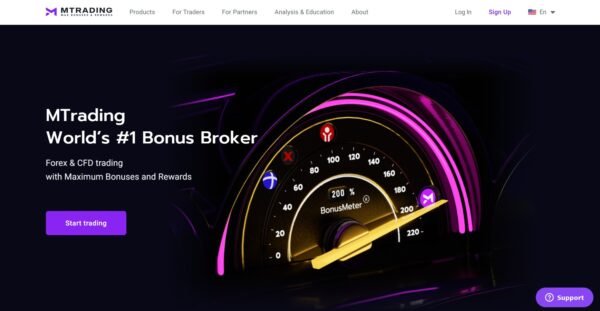Table of Contents
Introduction to MTrading
This comprehensive MTrading review examines whether the broker is trustworthy or if MTrading scam claims have merit. MTrading offers trading in forex, CFDs, indices, and cryptocurrencies, operating from Saint Vincent and the Grenadines. Canadians seeking to avoid online scams Canada should carefully evaluate its legitimacy before investing.
This article targets two groups: traders who feel they may have been scammed by MTrading, and cautious investors seeking reliable information before depositing funds. Our goal is to provide clear, evidence-based guidance to help protect your capital.
MTrading Regulation & Legal Status
MTrading is registered as an International Business Company (IBC) in Saint Vincent and the Grenadines but lacks licensing from tier-1 authorities like the FCA, ASIC, or SEC. This means the broker operates with limited oversight and minimal investor protection.
Offshore jurisdictions such as SVG are known for loose financial regulations, and authorities have flagged MTrading for unauthorized activities. Clients have no formal dispute resolution channels, making it harder to recover funds in case of issues. Canadians should always learn how to spot a scam broker before committing capital.
The absence of robust regulatory oversight raises significant concerns about whether MTrading could be a scam. Use tools like the MTrading ScamDoc report for credibility checks.
Trading Conditions & Platform Analysis
MTrading provides access to MetaTrader 4 (MT4) and a web-based platform. Features include negative balance protection and membership in the Financial Commission, which claims to compensate up to €20,000 per claim.
Account types range from commission-free to ECN-style setups, with leverage up to 1:1000. While high leverage is attractive, it carries significant risk, particularly without transparency regarding liquidity providers and execution methods.
Platform availability alone does not guarantee reliability. Always follow guidance on what to check before signing up with a trading platform, including execution fairness, provider transparency, and account terms.
These gaps highlight why Canadian traders should remain cautious and consider potential trading platform scams Canada regulators monitor.
Reputation & User Reviews About MTrading
On TrustPilot, MTrading holds a score of 4.2, with positive mentions of segregated funds and negative balance protection. However, only a fraction of reviews are verified, making the reliability of feedback uncertain.
Independent forums like Forex Peace Army contain complaints of withheld withdrawals and unresponsive support. Safety scores from online verification tools often rank MTrading low (around 2–3/10), signaling potential online fraud Canada authorities track.
Traffic and engagement analytics also indicate relatively low activity, which may suggest a small user base or cautious visitor behavior.
How to Test Whether MTrading Is a Scam
Canadian traders should perform the following steps to assess broker credibility:
- Verify Regulation: Check recognized authorities like the FCA, ASIC, or SEC for valid licenses. MTrading lacks top-tier oversight.
- Check Red Flags: Offshore IBC registration alone does not guarantee regulation or safety.
- Review User Complaints: Analyze verified reviews on TrustPilot, Forex Peace Army, and other independent platforms, focusing on withdrawal and support issues.
- Test Demo Platforms: Assess execution quality and usability without risking real funds.
- Examine Withdrawal Terms: Clear, timely withdrawals are essential; delays or opaque policies are warning signs.
- Beware Unrealistic Promises: Excessive leverage or guaranteed profits often mask higher risk and potential scams.
These checks help Canadian traders avoid trading scams Canada regulators continue to monitor.
Final Verdict & Safer Alternatives
MTrading provides familiar platforms like MT4 and offers features such as negative balance protection. However, the lack of top-tier regulation, reports of withdrawal delays, and low trust ratings suggest traders should exercise caution or consider avoiding the broker.
Safer alternatives include well-regulated brokers such as:
- IG Markets (FCA regulated)
- OANDA (FCA, ASIC regulated)
- CMC Markets (FCA, ASIC regulated)
Always prioritize brokers with verifiable licenses, transparent trading conditions, and strong reputations to safeguard your investments and trading experience.



